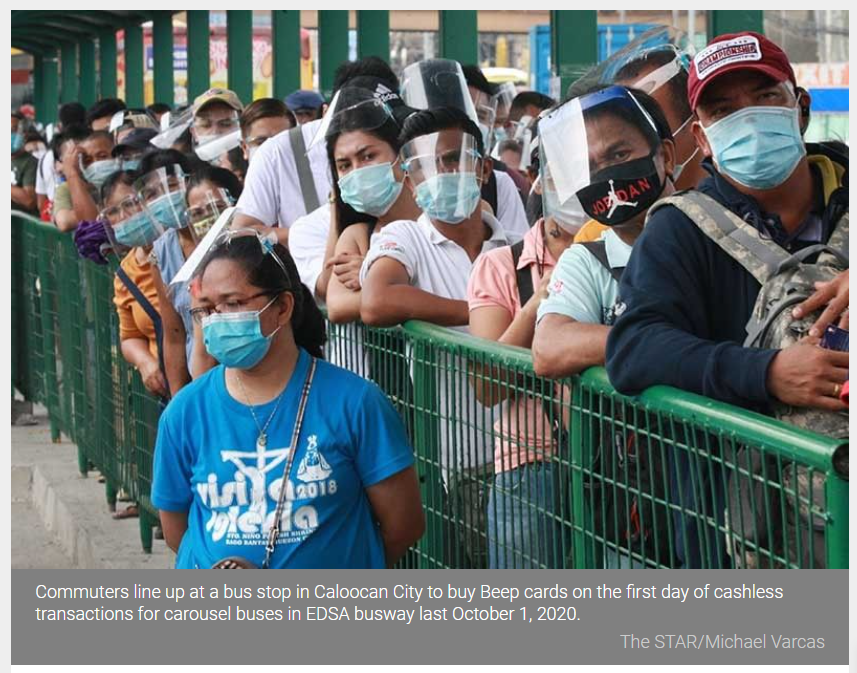Philippines: Devastated economy off to a ‘slow start’ to rebound — NEDA chief
MANILA, Philippines — After last year’s record-breaking economic devastation, the Philippines is off to a sluggish start in resuscitating a weakened economy and is unlikely to see a return to growth until the second quarter.
“To be honest, this year will be a slow start and we will ramp up by the middle of the year starting in the second quarter,” Acting Socioeconomic Planning Secretary Karl Kendrick Chua said in an online forum organized by the Foreign Correspondents Association of the Philippines.
“We will see year-on-year positive growth I think starting the second quarter,” he added.
A dismal projection this early throws the cold water on a rosy outlook of 7.5-8.5% growth for the entire year— a huge jump from 2020’s historic 9.5% contraction. That would mean the Duterte administration need to embark on a bigger catch up for the rest of the year, something that Chua admitted is easier said than done.
The biggest hurdle, he said, is the existence of some form of movement restrictions that earlier on Friday was affirmed by no less than President Rodrigo Duterte himself. Duterte announced that Metro Manila and some neighboring provinces will remain under general community quarantine in February, which for Chua means still choking down “the busiest area of the economy.”
That said though, the socioeconomic planning chief clarified Duterte “made the right decision” and that economic managers “support him” for delaying a pilot run of face-to-face schooling as well as letting minors go out as soon as the more contagious UK mutation of the coronavirus was detected at home.
When and how more reopening can finally push through remains unclear to date, but Chua assured the foreign press in the forum that assessments are made “every 2 weeks,” while stressing that the economy, fueled by its legion of young workers and students, is not bound to return to its glorious days without some more restrictions getting lifted.
“We are already seeing the detrimental effect (of no face-to-face classes)…As I mentioned, if 40% of the people is below 20 (years old) and the median age is 25 and most of them cannot go out, then I think the economy cannot go back to normal levels,” he said.
“That is reality, that is data, that is economics,” he added.
Not only is reopening getting delayed, bills government is banking on for some income boost have been left stuck at various levels of legislation. Chua admitted that at this pace, the Corporate Recovery and Tax Incentives for Enterprises (CREATE), Financial Institutions Strategic Transfer (FIST) and the GFIs Unified Initiatives to Distressed Enterprises for Economic Recovery (GUIDE) are not bound to propel the economy in the first 3 months.
The bills are meant to do different things, from cutting corporate income taxes to free up cash for battered companies, to allowing government to buy stakes on failing firms to save them. Yet, despite being urgently needed, they are all languishing in Congress or sitting idly on the president’s desk. “The impact is much less,” Chua said of the pending bills.
Economists at Fitch Solutions, a unit of the Fitch Group, agreed with Chua that consumer spending, which represent 70% of the economy, is key to growth, but also insisted that government can partly take up the cudgels for consumers by spending more. This is, however, a strategy long opposed by the government.
“Household consumption remains key to the growth rebound, with a recovery in gross capital formation dependent on stronger domestic demand,” Fitch Solutions said in a research note on Friday.
“The government will continue its accommodative fiscal stance to aid the recovery in domestic activity while an upturn in global trade will offer some boost to the economy, albeit with neither enough to offset disruptions to private domestic demand. The ability of the government to provide stimulus also somewhat rests on its containment of the pandemic,” they explained.
Source: https://www.philstar.com/business/2021/01/29/2073949/devastated-economy-slow-start-rebound-neda-chief


 Thailand
Thailand




